The Election Commission of India (ECI) is the apex constitutional authority responsible for administering and overseeing elections in the country. Established under Article 324 of the Indian Constitution, the ECI plays a crucial role in maintaining the democratic process through the execution of free and fair elections. Its primary objective is to ensure that the electoral process is conducted in a transparent manner, thereby strengthening the roots of democracy across the nation.
The structure of the ECI comprises a Chief Election Commissioner and two Election Commissioners, all appointed by the President of India. This triad is empowered to make decisions regarding electoral policies, manage the election schedule, and oversee the functioning of all election-related activities. The Commission operates independently of the government, thus ensuring impartiality in its operations. Moreover, the ECI is vested with the authority to supervise the preparation of electoral rolls and manage the conduct of elections for the Lok Sabha, Rajya Sabha, and State Legislative Assemblies, including by-elections.
The legal framework defining the ECI’s operations includes the Representation of the People Act, 1950 and the Representation of the People Act, 1951. These laws outline the procedures for conducting elections, setting eligibility criteria for voters and candidates, and establishing penalties for electoral malpractices. Additionally, the ECI is tasked with enforcing the Model Code of Conduct, which serves to guide political parties and candidates during the election period, ensuring that the elections are held in a fair environment devoid of undue influence.
Understanding the role and functions of the Election Commission of India is essential for comprehending the rules governing the Ludhiana election. By establishing a foundation of free and fair practices, the ECI upholds the democratic principles that are fundamental to India’s political framework.
Overview of the Ludhiana Election Process

The election process in Ludhiana is a significant event within the democratic framework of India, guided by the Election Commission of India’s (ECI) regulations. This process is structured to facilitate fair and transparent elections, consequently ensuring the active participation of the electorate. Generally, the elections are scheduled every five years, with the dates being announced by the ECI. In the context of Ludhiana, the upcoming elections are expected to occur in early 2024, which aligns with the general timeline for state assembly elections in Punjab.
Participation in the Ludhiana elections is subject to specific eligibility criteria as set forth by the ECI. To vote, a citizen must be at least 18 years old and must be a registered voter. Voter registration typically closes a few weeks before the election dates, which emphasizes the importance of ensuring that all eligible citizens have completed their voter registration in time. The ECI conducts special drives to facilitate this, aiming to increase voter awareness and participation rates across various demographics.
Ludhiana is divided into multiple electoral constituencies, each representing distinct localities. This division ensures that every segment of the population has the opportunity to choose their representative. During the elections, the ECI mandates adherence to strict campaigning guidelines, which includes the announcement of candidates, campaigning periods, and the regulation of political advertisements. These regulations are vital in maintaining transparency and fairness, thereby fostering a trusted electoral environment. Furthermore, all electoral activities are monitored to prevent malpractice, reinforcing the integrity of the electoral process in Ludhiana. By understanding these components, citizens can navigate the election process more effectively, ensuring their voices are heard in the democratic setup.
Key Rules and Regulations Set by the ECI
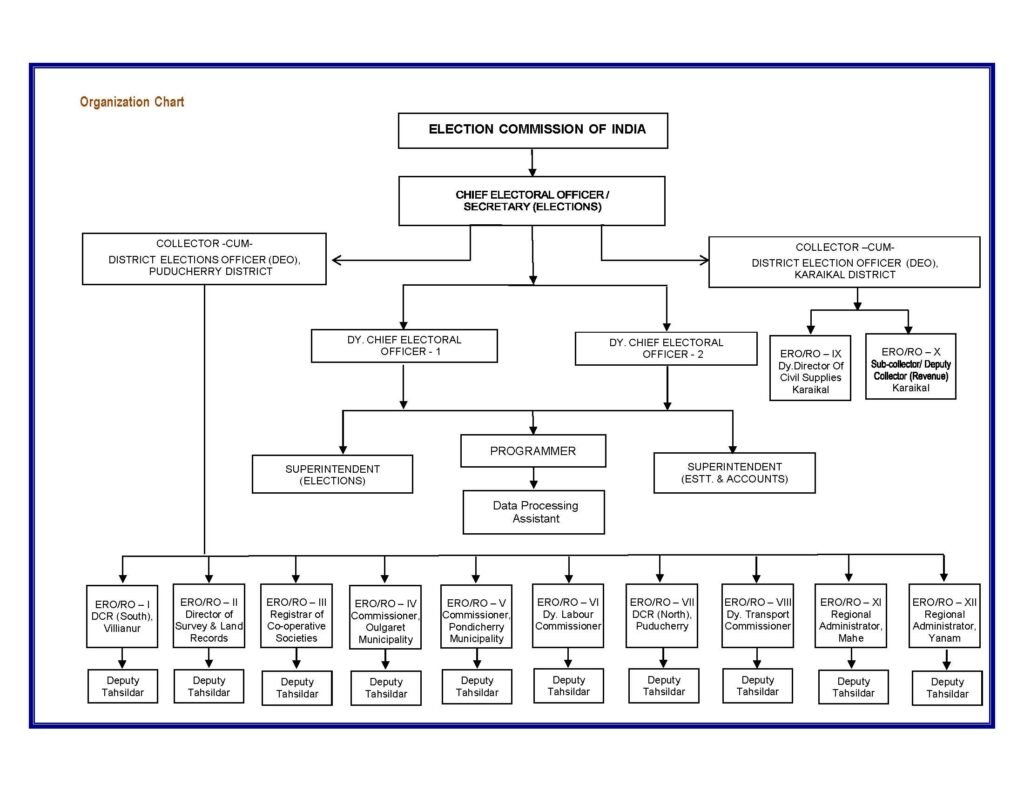
The Election Commission of India (ECI) plays a pivotal role in ensuring free and fair elections across the country, including the Ludhiana election. Understanding the rules and regulations set by the ECI is essential for candidates, political parties, and voters alike. These regulations establish guidelines for candidate nominations, election campaigning, and voter eligibility, which are critical for maintaining the integrity of the electoral process.
Firstly, the ECI stipulates specific criteria for candidate nominations. To be eligible, candidates must be citizens of India, at least 25 years old for Lok Sabha and 30 years for Rajya Sabha elections, and must not be disqualified under any law. Furthermore, individuals must submit a nomination form, which requires the endorsement of a specified number of electors and a deposit amount, the forfeiture of which occurs in case of poor performance.
In terms of election campaigning, the ECI imposes regulations aimed at creating a level playing field for all candidates. Campaigns must adhere to a stipulated election code of conduct, which prohibits the use of communal or inflammatory language. Additionally, spending limits are imposed to ensure that financial resources do not unduly influence electoral outcomes. The ECI monitors compliance with these rules closely, imposing penalties for any violations that can include disqualification from the election.
Moreover, voter eligibility is strictly defined under the rules set by the ECI. All citizens aged 18 and above are eligible to vote, provided they have registered on the electoral rolls. The ECI employs various measures to ensure the accuracy of these rolls, enabling fair participation in the electoral process. This encompasses a continuous updating mechanism to remove names of deceased individuals or those who have shifted residence.
By adhering to these key rules and regulations set by the ECI, the electoral process remains transparent and equitable, empowering citizens to exercise their voting rights effectively.
Voter Education and Awareness Programs
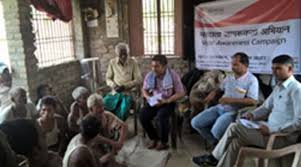
The Election Commission of India (ECI) plays a pivotal role in fostering democratic participation through comprehensive voter education and awareness programs, especially in areas such as Ludhiana. Recognizing the necessity of an informed electorate, the ECI implements various initiatives aimed at enhancing public understanding of the voting process. These programs are designed to empower citizens by informing them about their voting rights, the significance of their participation, and the practical steps involved in casting their votes.
One of the primary objectives of these voter education initiatives is to demystify the electoral process. Through workshops, seminars, and public meetings, the ECI disseminates information regarding the steps involved in voter registration and the importance of verifying one’s details in the electoral roll. In Ludhiana, these sessions often include interactive components, enabling participants to ask questions and clarify any doubts they may have concerning their rights and responsibilities within the electoral framework.
Moreover, the ECI utilizes a diverse array of media to reach a broader audience. Educational pamphlets, radio spots, and social media campaigns are employed to deliver messages that highlight the importance of participating in elections. These tools are particularly effective in engaging younger voters who are more likely to consume information through digital platforms. By tailoring the content to resonate with different demographics, the ECI aims to create a more inclusive electoral environment.
Additionally, the commission collaborates with various civil society organizations and local bodies to amplify their outreach efforts. This partnership ensures that voter education is not only widespread but also culturally relevant, addressing specific concerns and motivations of the communities within Ludhiana. Such proactive and targeted approaches reflect the ECI’s commitment to encouraging an active and informed electorate, which is essential for the health of democracy.
Role of Electoral Officers in Ludhiana
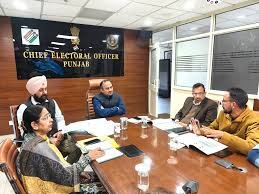
The electoral officers play a pivotal role in the facilitation and oversight of the electoral process in Ludhiana. These officials are entrusted with ensuring that elections are conducted in a free, fair, and transparent manner, adhering strictly to the guidelines established by the Election Commission of India. The responsibilities of electoral officers extend beyond mere organization; they are essential in fostering public confidence in the electoral system.
One of the primary functions of electoral officers is the management of election logistics. This encompasses everything from the preparation of polling stations to the deployment of voting equipment and personnel. They are responsible for ensuring that facilities are accessible to all voters, including those with disabilities, thus promoting inclusivity. Furthermore, electoral officers must also oversee the effective distribution of electoral materials, ensuring that all candidates have equal access to the resources necessary for campaigning.
In addition to logistical oversight, electoral officers act as mediators for resolving disputes and grievances that arise during the election process. They are tasked with addressing complaints from voters, candidates, and political parties, thereby maintaining the integrity of the electoral process. This grievance redressal mechanism is crucial, as it encourages voter participation and assures the public that their concerns will be heard and acted upon.
Moreover, electoral officers engage with the community to raise awareness about the voting process, educating citizens on how to exercise their rights responsibly. This grassroots engagement is vital for enhancing voter turnout and ensuring that the electorate is well-informed. The role of electoral officers in Ludhiana, therefore, encompasses not only administrative duties but also a commitment to uphold democratic principles and safeguard the electoral process at every level.
Important Dates and Timelines for the Ludhiana Election
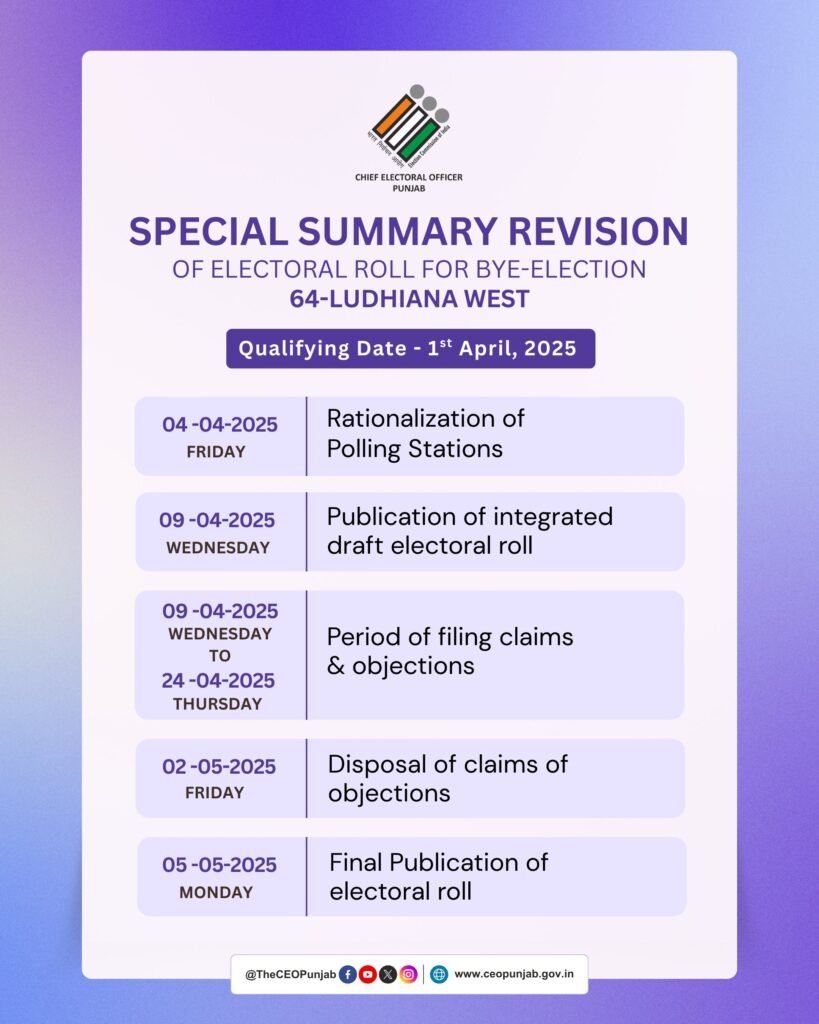
The Ludhiana election is a significant event in the electoral calendar, and understanding the important dates and timelines is crucial for both candidates and voters. The Election Commission of India outlines specific timeframes that govern the electoral process, which helps ensure a fair and transparent election. Familiarity with these dates allows voters to remain engaged and informed.
Typically, the electoral process commences with the announcement of the election dates. For the Ludhiana election, this announcement establishes a timeline within which all subsequent events unfold. Candidates must then file their nominations within a designated period, which usually lasts around 14 days from the election announcement. This phase is pivotal, as it allows potential candidates to declare their intention to contest and present their qualifications to the voters.
Following the nomination phase, there is a specified period for scrutinizing nominations, allowing for objections and addressing any disqualifications. This process is essential to maintaining the integrity of the electoral process. Once the nominations are confirmed, the election campaign period begins, during which candidates can engage voters, promote their manifestos, and participate in debates and public meetings.
The campaigning phase typically lasts several weeks, culminating in a peaceful environment for voters to make informed choices. As the campaign period draws to a close, there will be a designated silence period, often known as the “model code of conduct,” in which campaigning is temporarily halted to give voters time to reflect on their choices. Finally, the voting day arrives, marking the conclusion of the election process when citizens exercise their right to vote.
Being aware of these important dates not only fosters voter participation but also enriches the democratic process in Ludhiana. It encourages citizens to stay updated on the election timeline and engage fully in the electoral proceedings.
Monitoring and Enforcement of Election Rules
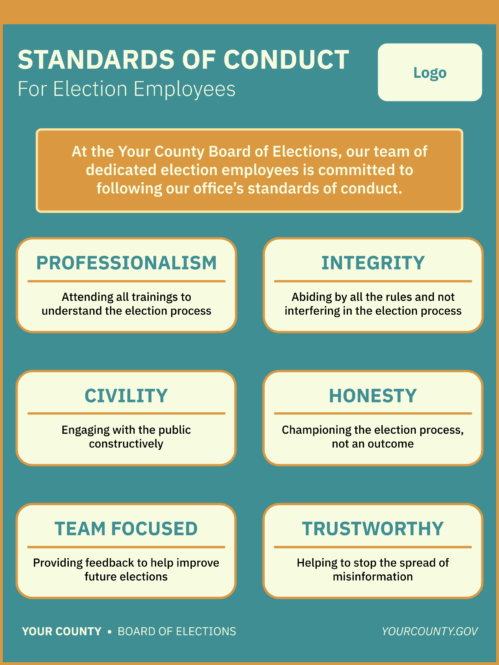
The Election Commission of India (ECI) plays a pivotal role in ensuring that elections, including those held in Ludhiana, are conducted in a free and fair manner. To achieve this, the ECI has established comprehensive mechanisms for monitoring compliance with election rules. This includes the deployment of various teams and the utilization of technology to oversee election activities closely. Election observers are appointed to various constituencies to gather real-time data on polling activities, ensuring that any irregularities can be swiftly addressed.
One of the significant challenges that the ECI faces during elections is the occurrence of malpractices, which may include bribery, misinformation campaigns, and other forms of electoral misconduct. To tackle these issues, the ECI has put in place stringent measures designed to deter these actions. For instance, the commission has formulated strict guidelines concerning campaign financing and advertising, requiring candidates to maintain transparency in their financial dealings. Additionally, the ECI promotes voter education initiatives aimed at informing the electorate about their rights and the importance of reporting any deviations from the established rules.
In cases where violations of election rules are identified, the ECI possesses the authority to undertake enforcement actions. Such actions can range from issuing warnings to candidates and political parties to disqualifying them from contesting in future elections. For severe infractions, including widespread bribery or the dissemination of false information, the ECI may escalate the matter to law enforcement agencies for criminal prosecution. These enforced measures are essential not only for maintaining the integrity of the electoral process in Ludhiana but also for upholding public confidence in the electoral system. Hence, through diligent monitoring and strict enforcement of election rules, the ECI seeks to foster an environment where democratic values can flourish adequately.
Challenges and Controversies in the Ludhiana Election
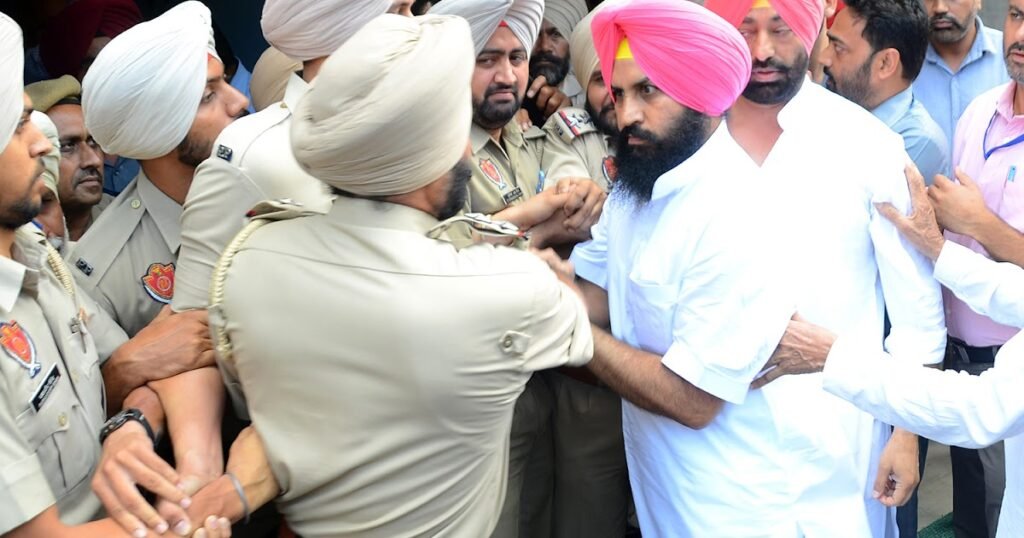
The Ludhiana election is poised to face a myriad of challenges and controversies that could significantly impact its integrity and outcomes. One of the primary concerns is the potential for electoral fraud. Instances of voter impersonation, ballot tampering, and misinformation campaigns can undermine the democratic process. Strengthening monitoring mechanisms, including the deployment of independent observers and utilizing technology for real-time data reporting, can serve to mitigate these issues. Additionally, educating voters about their rights and election procedures can empower them to report suspicious activities.
Another pressing concern that warrants attention is campaign finance. The influx of unregulated money into election campaigns has raised questions about transparency and fairness. Candidates may have access to disproportionate financial resources, leading to an uneven playing field. This challenge necessitates stringent enforcement of existing campaign finance laws and possibly the establishment of a committee dedicated to overseeing campaign contributions. Implementing transparency measures requiring candidates to disclose their funding sources can also enhance accountability and public trust.
Voter suppression is yet another critical issue that may emerge during the Ludhiana election. This suppression can take various forms, including restrictive voter ID laws, gerrymandering, and inadequate access to polling places. To address these concerns, it is essential to facilitate wider voter registration campaigns, ensure that polling places are accessible, and advocate for laws that protect voter rights and promote inclusivity. By bringing awareness to these challenges, the Election Commission and civil society can work collaboratively to uphold the core principles of democracy.
Conclusion
In conclusion, adhering to the Election Commission of India (ECI) rules is paramount in fostering a transparent and fair electoral process in Ludhiana. The ECI is tasked with maintaining the integrity of elections across the country, and its regulations serve as a framework to safeguard democracy. It is essential that all stakeholders—including voters, candidates, and election officials—understand and comply with these rules to ensure the success of the electoral system.
Voters play a critical role in sustaining the democratic process. They must be informed about their rights and responsibilities, including the importance of casting their votes freely and fairly. By actively participating in the election, they underline the essence of democracy. Candidates, on the other hand, have a responsibility to adhere to the ECI’s guidelines when campaigning and should conduct themselves ethically throughout the electoral period. This commitment not only enhances their credibility but also helps build trust within the electorate.
Furthermore, electoral officials are tasked with the responsibility of enforcing these rules diligently. Their impartiality and adherence to the guidelines are crucial in maintaining public confidence in the electoral process. Effective supervision and transparent conduct can deter malpractices, thereby ensuring a conducive environment for a free expression of the popular will.
Ultimately, the election in Ludhiana serves as a microcosm of the larger democratic process in India. Collective adherence to the ECI’s rules is necessary for upholding the principles of democracy, ensuring that all participants can engage in a fair election. By recognizing and respecting these rules, we collectively contribute to the integrity and success of future electoral endeavors.
